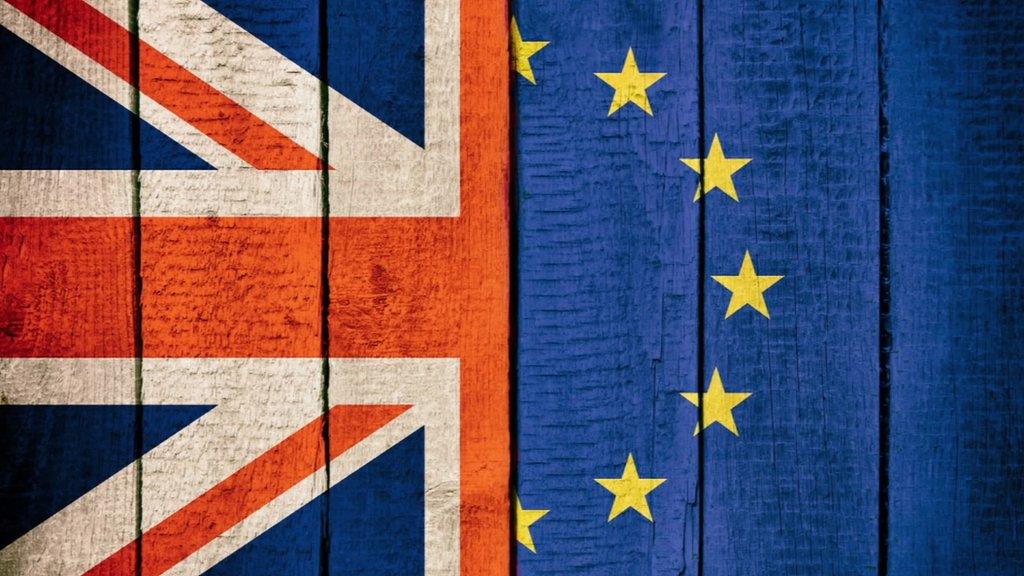Brexit: What's life like living on the Irish border?
- Published
- comments
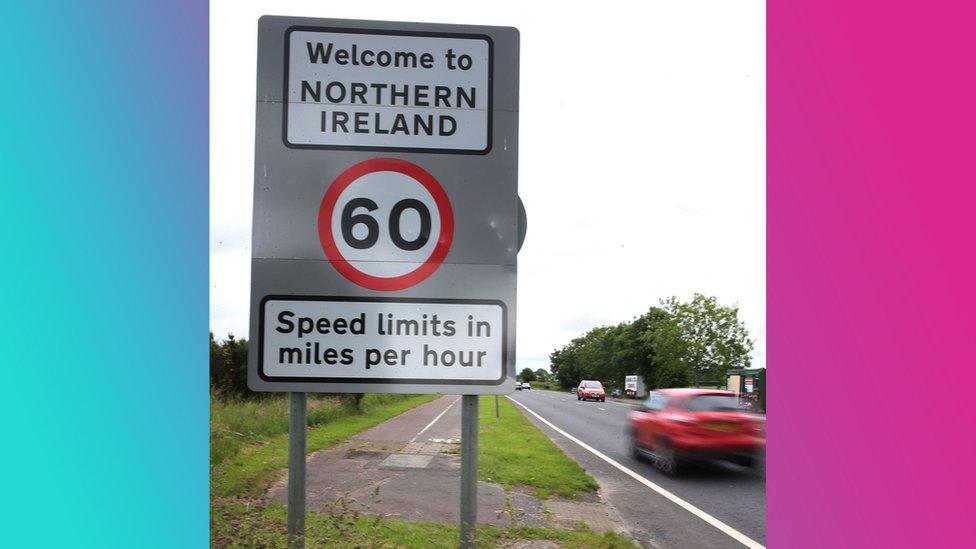
One of the big issues being discussed in talks about Brexit at the moment is the Irish border.
At the moment, people can travel freely across the Irish border, between Northern Ireland and the Republic of Ireland, because it is what is called an 'open border'.
But after Brexit, that won't automatically be the case and movement across this border may become more restricted. (You can read more about the Irish border issue with this guide.)
While politicians continue to discuss the issue and how the Irish border will be managed once the UK leaves the European Union (EU), Newsround has been to meet children living near the Irish border to find out more about why it's something that could affect them and how they feel about it.
'My hedge separates the north and the Republic of Ireland'
Lots of children in both Northern Ireland and the Republic of Ireland live really near to the border and travel across it regularly - maybe even every day.
After Brexit, they wouldn't automatically be able to do this as easily as they can do now. This could particularly affect children who need to travel across the border in order to go to school.
We went to a school to chat to children to find out how they feel about the situation.
'My hedge separates the north and the Republic of Ireland'
"It feels very uncertain about Brexit in Ireland," one girl said. "No one really knows what's going to happen yet," said another.
Explaining just how close some of the children live to the border, another girl told Newsround: "I live in the north and my hedge separates the north from the Republic of Ireland."
The Department of Education and Skills in the Republic of Ireland told Newsround that around 500 children need cross the Irish border to get to school every day. Those in charge of schools on both sides of the border have said they are working to make sure that children will still be able to do this after Brexit.
We all know that Brexit will bring a new way of doing things, but this is one aspect of life on our island that should not change.
The issue of children travelling to and from school is something that is still being discussed.
'I'm worried I'll need a passport to play football'
People don't just cross the border to go to school though. Lots of children travel between the two countries to take part in activities or help their families to do the shopping, for example.
James crosses the border from Northern Ireland in order to train with his football team, which is based in the Republic of Ireland.
He has ambitions to become a professional player when he is older.
'I'm worried I'll need a passport to play football'
James worries that if it becomes more difficult for him to cross into the Republic of Ireland, he may not be able to play with as many teams, which could make it more difficult for him to be scouted.
"After Brexit, I'm worried that crossing the border will become far more difficult than it is now because I might have to show my passport crossing the border to go play football over the other side for my football team," he said.
'It doesn't feel like there is a border right now - that might change after Brexit'
There was a feeling among the children we met that it is almost like the Irish border doesn't really exist at the moment, as sometimes you don't even notice that it is there.
Ellie and Stephen showed us how when they jump in a car to go to school, the roads take them freely in and out of Northern Ireland multiple times, without them really even knowing they're crossing a border.
"There's nothing really there to symbolise the border. It's just there," said Ellie.
What's it like going to school on the Irish border in Northern Ireland?
One school pupil agreed with Ellie saying that it didn't really feel like there was a border there at all at the moment, but that that might change after Brexit happens.
"I'd prefer it to be an easy border so everything stays the same as it is," explains Ellie.
What will happen to the Irish border?
We do not know what will happen next or how exactly the Irish border will be managed after Brexit has taken place.
There has been talk of the border possibly becoming a 'hard border'.
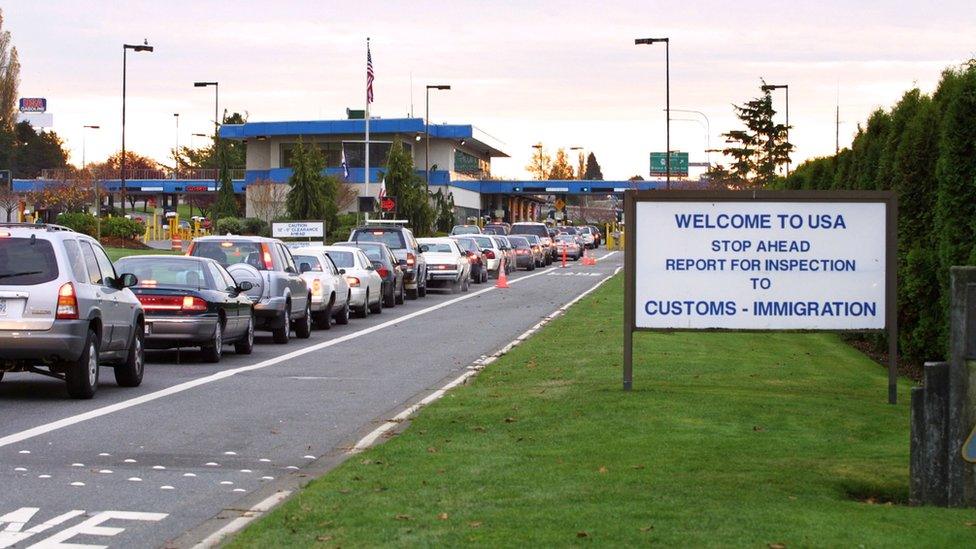
This photo shows cars queuing up to cross the border between the US and Canada, with officials checking who is travelling between the countries
This could mean the border would be controlled and protected by police, customs officers or the military. People could need to have their passports checked to cross it and journeys which - at the moment - are quick and easy could become much longer.
Politicians in the UK and the EU have said they do not want this to happen.
To stop this from happening, Prime Minister Theresa May's Brexit deal contained something called the Northern Irish backstop, which would see Northern Ireland continue to follow some of the same rules as the Republic of Ireland and the rest of the EU in order to keep the border more open.
But many have said that they don't want to see Northern Ireland treated any differently to the rest of the UK after Brexit has happened, so they are not happy with this backstop arrangement.
Both UK and EU politicians are keen to avoid a hard border, but discussions - and disagreements - about how to make this happen are still ongoing.
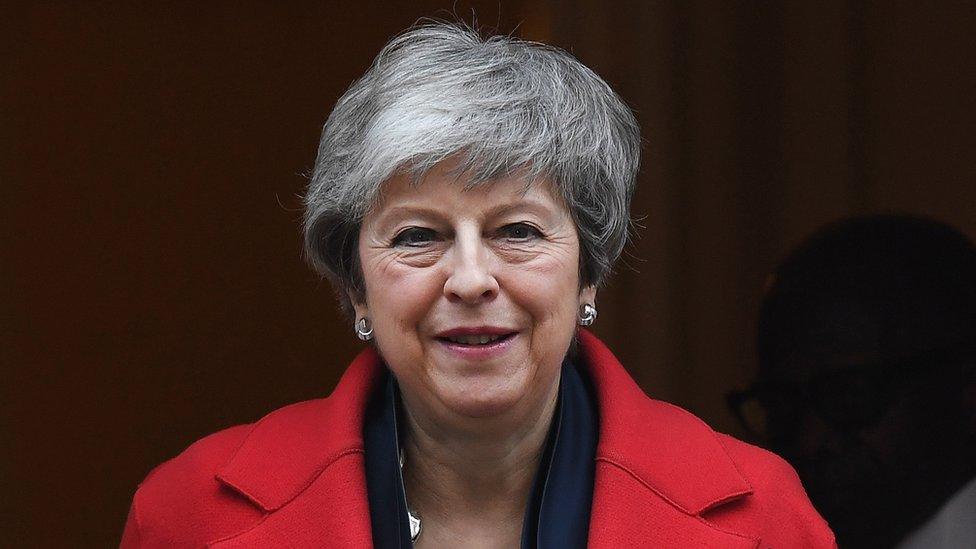
Prime Minister Theresa May (seen in this picture) is working to come up with a Brexit deal - including an arrangement about how the Irish border will be managed after Brexit - that both EU and UK politicians can agree on
Feb 2016: Prime minister says UK should be allowed to vote on EU membership
Jun 2016: EU referendum result day: As it happened
Mar 2017: The UK is officially on its way out of the EU
Nov 2018: EU approves withdrawal agreement
Dec 2018: Theresa May wins vote to keep her job
Jan 2019: 432 MPs vote against May's Brexit deal
Feb 2019: Will Britain's exit from the EU be delayed until May?
- Published23 October 2019
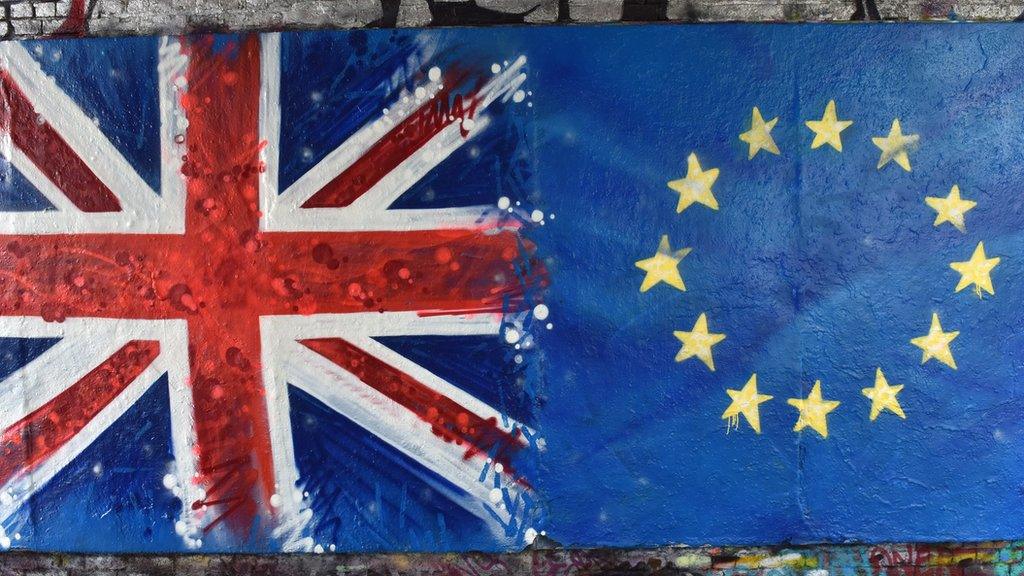
- Published3 April 2019
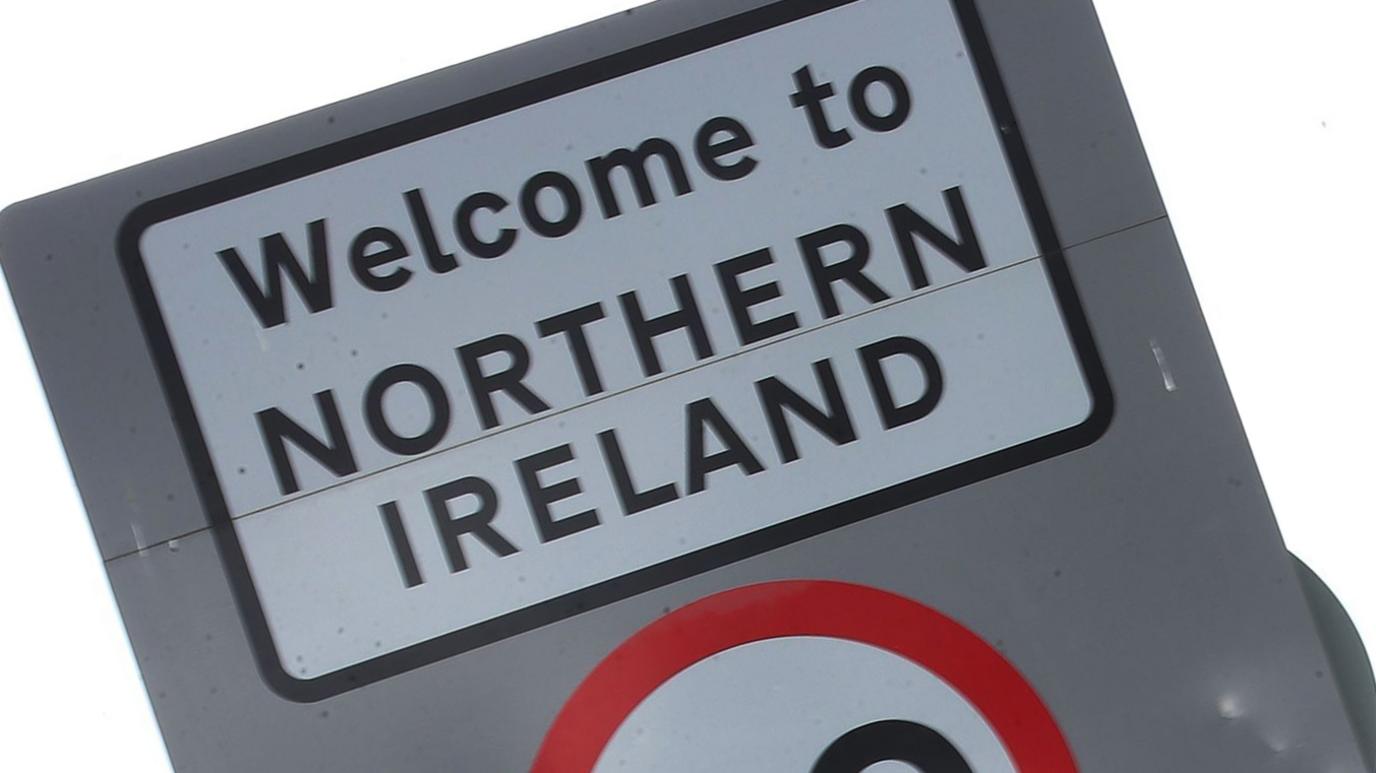
- Published7 January 2019
